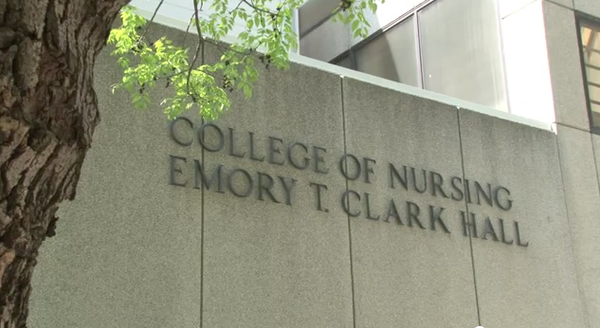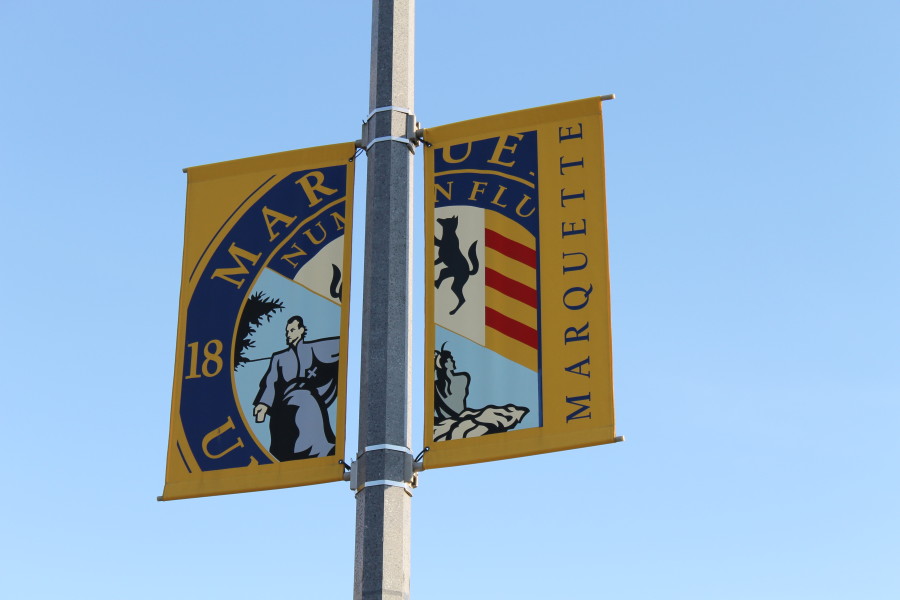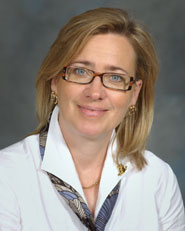After almost five years without a permanent academic overseer, the students and faculty in Marquette’s largest college will begin to see some progress in the university’s hunt for a new dean.
Phillip Naylor, the chair of the dean search committee and an associate professor of history, visited the College of Arts & Sciences student council Tuesday night to discuss the committee’s current progress and how suitable candidates will be selected. From a pool of 120 applicants, Naylor said the committee has narrowed the number down to 16 suitable candidates.
The committee is currently awaiting letters from these 16 applicants, which Naylor said are expected to arrive by Halloween. The letters will provide the university with applicants’ reasons for wanting to become the college’s next dean. The letters will help the committee narrow the pool down to three or four candidates, who will then be invited to campus to meet with faculty and students this spring. University President the Rev. Scott Pilarz will ultimately make the final decision.
The search committee for the dean is made up of ten people, including professors, alumni and administrators. The committee is working closely with executive search firm Isaacson, Miller. The firm helped to create the “Opportunity and Challenge Profile,” a document specifying criteria the university is looking for in a prospective candidate. Isaacson, Miller used these criteria to find the pool of 120 applicants for the committee.
Because of the confidential nature of the search, the committee cannot release any names of prospective candidates or names of their institutions. However, Naylor said the committee has looked “all over” at candidates throughout the nation and one international candidate.
“I like what I see so far,” Naylor said about the candidates. “Let’s put it that way.”
According to the “Opportunity and Challenge Profile,” the College of Arts & Sciences contains 39 undergraduate majors and 15 academic departments and is home to 2,500 students, one third of Marquette’s total undergraduates. All students in the university take classes in the College of Arts & Sciences to fulfill courses required by the university core, such as philosophy and theology.
“There is a real need for a dean,” Naylor said in a prior interview.
Currently, no undergraduate in the College of Arts & Sciences has had a permanent dean for that college during her or his time at Marquette.
The search for a College of Arts & Sciences dean has not been a smooth one. Since former dean Michael McKinney’s retirement in December 2007, the post has been filled by a number of interim deans, most recently by the Rev. Philip J. Rossi, who has held the position since July 2010. According to a March 19, 2009 article in the Tribune, the first search was closed in March 2009 in hopes of yielding a larger group of more suitable candidates in a second search later that fall.
The second search encountered more trouble in the spring of 2010 when Marquette’s reputation was called into question after the university rescinded its job offer to Jodie O’Brien, an openly gay professor from the University of Seattle. The university rescinded its offer, it said, because the content of her publications did not align with the university’s Jesuit mission. To protest the university’s action, faculty members from both Marquette and Seattle placed an ad in the Milwaukee Journal Sentinel condemning the university for its actions and demanding it re-offer the job to O’Brien.
Naylor said the current search is “a whole new game.” He does not expect it to be affected by Marquette’s past history.
The search remained at a standstill for two years and started up again in June 2012. Naylor attributed the long hiatus to the 2011 transition from the Rev. Robert A. Wild to the Rev. Scott Pilarz as university president.
This is the third and, hopefully, final attempt at finding a College of Arts & Sciences dean.
According to the university’s “Opportunity and Challenge Profile” for the College of Arts & Sciences, the dean is expected to be the “intellectual leader” of the college, overseeing both academic and administrative roles while managing a $40 million budget and reporting to numerous college personnel. The profile also anticipates that the dean will do her or his best to engage the college in inclusive decision-making, forge “mutually beneficial” relationships with the other colleges and university offices, develop innovative interdisciplinary programs, motivate and support faculty and students, find new opportunities to generate funding for the college and build strong relationships with alumni and donors.
There is also a special emphasis on Jesuit ideals. It expects applicants for the job to “serve as a compelling advocate and spokesperson for Catholic, Jesuit education in the 21st century, within the university and beyond” and to “create a shared vision and identity that positions Arts & Sciences as a leader in Catholic, Jesuit education.”
After five years of no permanent dean, students in the college are happy to see that the university is moving toward finding a candidate.
Renae Delucia, a sophomore in the College of Arts & Sciences, said a permanent dean is much needed.
“I do think it’s long overdue,” Delucia said. “It’s going to be really exciting when we do have a dean.”
The prospect of meeting and talking to the final candidates is also anticipated by students.
“I’m really excited about having a new dean,” said Adam Bissonnette, a sophomore in the College of Arts & Sciences, “and to hopefully be involved in that process when they bring the candidates on campus.”






Stephen Franzoi • Nov 3, 2012 at 4:46 am
Given that Father Pilarz was a member of the Board of Trustees that supported the breaking of the contract with Jodi O’Brien in May 2010, it is not surprising that the current dean search will not consider anyone whose scholarly work is in any way out of line with the Catholic Church, especially in the area of sexuality and gender. The unstated message here to younger Marquette faculty is that if you want to eventually become an administrative leader at this university your scholarship better not focus on any “delicate” issues related to sexuality or gender. So much for academic freedom. If Marquette wants to be part of the 21st century, its hiring policies should not reflect the heterosexism of the mid-20th century.